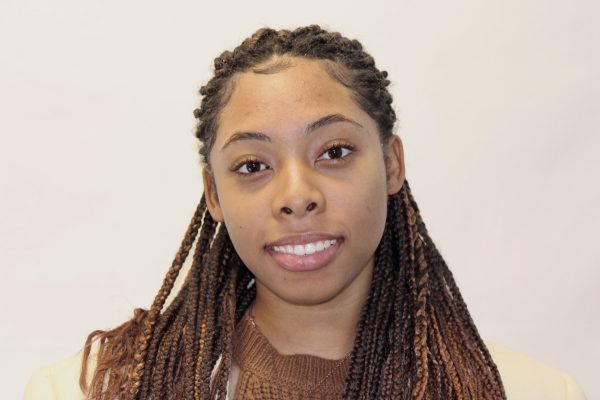Connecticut Aid-in-Dying Bill Fails Again
May 8, 2023
Although a proposed Aid-in-Dying bill failed in the General Assembly, an advocate said those opposed have to put their lives and time to fight against it every year.
“It is disappointing to see medical aid-in-dying will again not pass out of the Judiciary Committee, ending the legislation’s consideration in Connecticut this year,” State Sen. Saud Anwar, D-South Windsor, said. “I hoped the legislation would receive a thorough and meaningful debate in the House and Senate. While I understand the arguments and opposition against this bill, I also recognize that our failure to pass this bill will prevent a number of Connecticut residents from having autonomy in their end-of life-choices. It is not lost on me that an increasing number of family members testify in support of the legislation each year because their loved ones lose their battles with illness. I am hopeful that in the future, we can finally pass this bill and provide additional end-of-life options for those seeking them.”
State Rep. Jillian Gilchrest, D-West Hartford, said she was disappointed by the setback.
“Our proposal is modeled off of legislation in many other states and provides people with an option at the end of their life. If they don’t want to take the option, they don’t have to,” Gilchrest said. “I feel that the bill we have crafted has many strong protections and am committed to working on it again next session.”
Kira Philips, from Hartford, said she is fighting for the legal choice to end one’s suffering.
“Like a lot of important issues, it’s about choice,” Philips said. “You want to be able to buy a gun. That’s your choice. If you want to be able to get an abortion, that’s your choice. This is also about personal choice.”
Gilchrest said the safeguards of the Aid-in-Dying bill are limited to a specific group of people.
“When we hear testimony from people who are disabled and know the history of this country, the current reality is that individuals with disabilities are often discriminated against and treated differently,” Gilchrest said. ” So, in no way do I minimize that experience, nor do I understand that experience. That said, the perimeters are so narrow that it’s six months to live, so an individual living with a disability could not be coerced into choosing to use aid-in-dying under the perimeters that are in this bill.”
Dr. Andre Sofair, a physician and professor of Internal Medicine at Yale School of Medicine, where he practices and teaches, said the bill’s six-month timing provision is inconsistent.
“The six months timing rule I think is difficult,” Sofair said. “Certainly, we have patients that are terminally ill. Say from metastatic cancer or advanced neurological disease where it’s pretty clear that the patient’s death is imminent. So, I think there are certainly cases where you can, with some reasonable certainty, say that the patient’s lifespan is very short. I think sometimes it’s problematic. I’ve seen plenty of patients of my colleagues with whom I’ve discussed this and because of a variety of different factors, whether it’s personal factors, on the part of the patient, or treatment that they get while they’re in hospitals, people actually go home, they get better, and they are welling up to go home. So I think that it’s difficult to determine that in all cases.”
Philips said her mom was diagnosed with multiple myeloma that she had to fight for almost three years. She had started getting better at one point but her body gradually rejected the chemo and she started to decline again. Philips said her mom committed suicide.
“With [Aid-in-Dying] you have time to prepare, you have time to get that closure, you have time to talk about what the person wants,” Philips said. “And even if you’re not okay with that person dying or ending their life, it’s still a different way to think about it. It’s still a lot less traumatic than you know, having to go out into your backyard shed and find your [mother] shot in the head, so I think mental health is a huge component or should be a huge component of the hospice system and it is a huge part of the medical aid-in-dying process and being eligible.”
Nancy Alisberg, an attorney and a member of the Progressives Against Medical Assisted Suicide organization, said when she started to represent cases with people with disabilities, she had come to understand how the Aid-in-Dying bill could lead to discrimination.
“I used to support the idea of medical-assisted suicide,” Alisberg said. “Then in the course of my work, I was the managing attorney at an office that represents people with disabilities. The first one was a case on behalf of a class of people who were concerned about a case that had been brought by doctors who wanted to have the courts declare that the definition of murder or manslaughter did not include medical assisted suicide. Those clients wanted to intervene in that lawsuit to make sure that their position that yes, in fact, it is murder or manslaughter would be considered. And that was when I first began to have second thoughts. And in talking to my clients and two people working on this issue, I began to see how people with disabilities can be discriminated against and are easily discriminated against by medical professionals who don’t believe their lives are worth living.”
Philips said there are layers to her mother’s death because she had to deal with cancer, suicide and gun violence.
“She shot herself,” Philips said. “She was stopping the suffering she had already been through and not letting it get to the stage of extended suffering and decline and going back to being bedridden. I mean, my mom didn’t want to do that. A lot of people don’t want to do that.”
Cathy Ludlum, a leader of the Second Thoughts organization, a grassroots disability rights organization committed to stopping the legalization of assisted suicide, said there will be a continuous fight against Aid-in-Dying.
“If this bill were to be passed, we would need to create an extensive rescue network for people with disabilities and other vulnerable populations because we’ll be sucked into changes in the medical system that we can not prevent from happening as a result of legislation,” Ludlum said. “People talk about it being restricted to a particular population, but that’s not possible to enforce if it were to be passed.”
Ludlum said a person’s disability already affects their treatment.
“Those of us with disabilities are already documented as having trouble accessing treatment,” Ludlum said. “We have trouble because of what our insurance is, we have trouble because of the biases of practitioners in the medical system. We have practical issues because sometimes it’s hard to [conduct] tests on us because of how our bodies may be. We already have difficulty accessing care to begin with and when we turn up in the emergency room when in the hospital, there is sometimes the perception among practitioners that we would be better off if they did not aggressively treat us and maybe it would be better off that we die. So now you add to that this other ‘treatment’ option and it just further reduces any incentive to address these difficult problems.”
Sofair said that bias within the healthcare system is a serious concern.
“I think, generally speaking, doctors and health care providers, etc, I don’t think we would willingly do something like that,” Sofair said. “But I think that there’s always an issue of unconscious bias, which comes up a lot in healthcare, whether it’s somebody that doesn’t look like us, doesn’t act like us, or doesn’t come from the same socioeconomic background…, or maybe they are disabled. That may have some kind of bias that might render us less likely to give them the care that they need. So I’ve not seen it happen personally. But I think that that is one of the main concerns.”
Ludlum said it is a constant fight against legislation.
“The other side only needs to win once, we [Second Thoughts] have to win every year,” Ludlum said. “Every year we put our lives and our time into this.”





